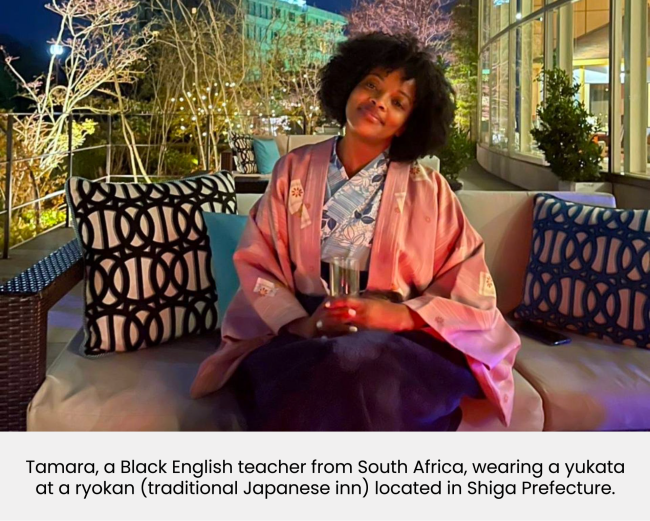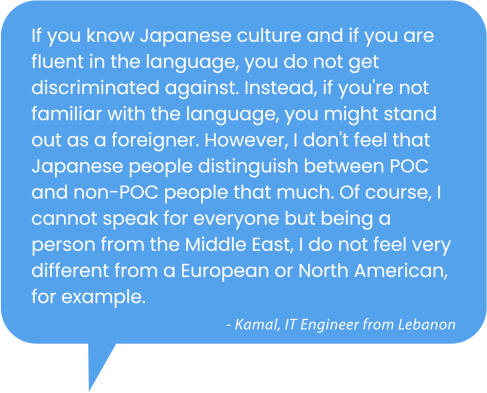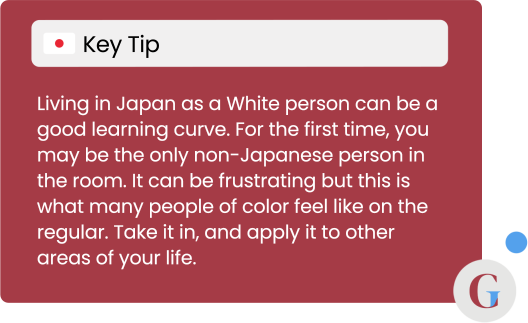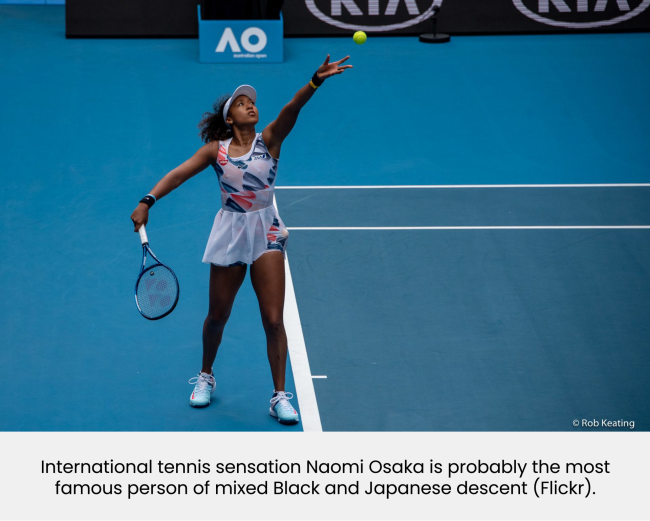Cultura-On-the-Go: Being a Non-Asian Foreigner in Japan
Jan 17, 2023
Cultura-on-the-Go is back. If you enjoyed our first Mini Lesson on Health and Safety in the UK, prepare to soak in more of CulturaGo’s online cultural preparation courses with a new compact, bite-sized Mini Lesson. This time, we are heading to Japan.
Pre-departure resources that answer both country-specific and identity-specific questions ahead of work or study abroad experiences are not easy to come by nor put together. Still, students, interns and employees going abroad have many identity-related concerns that providers often struggle to answer.
Will I be safe as a woman walking alone at night? Can I openly be myself as an LGBTQ+ person at university or at work? Will I be treated differently because of my skin color?
The short answer is: you can check out CulturaGo’s cultural preparation courses to find out about this kind of content and much more. An even shorter answer is: you can get an idea of how you can help raise awareness on these topics with students, interns and employees, by taking a closer look at our second Cultura-on-the-Go Mini Lesson. This time, we are showcasing our Introduction to Japanese Culture course, module 6: Identities, Diversity and Inclusion in Japan.
Enjoy!
Being a Non-Asian Foreigner in Japan
Module 6: Identities, Diversity and Inclusion in Japan
Foreigners in Japan are called gaijin, a shortening of gaikokujin, and until very recently the term mainly covered White, Latin American, Black and Brown foreigners. This view of categorizing foreigners in Japan excluded East and Southeast Asian foreigners, or rather included them in the old colonial system.

Every person’s experience is different, and every ethnic and racial background brings with it unique sets of needs, concerns and expectations when it comes to living away from home. However, the way racism is discussed in Japan may differ from your home country. Foreigners are often lumped up in a big group that does not necessarily differentiate between nationality or skin tone.

Expect lots of stares, if you are very tall, have curly or textured hair, if you have freckles or fair colored eyes, very fair skin or very dark skin. It might as well be curiosity and admiration. People might move a few seats down the train carriage, but usually it is because people like to keep some personal space for themselves in public, especially in highly populated areas like Tokyo.
Among gaijin, the ones that undoubtedly benefit the most from the fascination factor are White people and White-passing people with fair complexions. You might be able to get away with not really following the rules of Japanese etiquette - also known as the “gaijin card” - more so if you’re White than Black, Asian and Brown. Please be aware of your position of privilege and do not abuse your gaijin card.

Megumi reflects on how the perception of foreigners has changed in the past few years in Japan.
Spotlight: Being Black in Japan
Although seeing and being around foreigners may not be a rarity for many Japanese people, White foreigners tend to be seen as “familiar foreigners”, while Black foreigners’ as somehow more foreign. There will likely be more stares from Japanese people towards Black people, and in more rural Japan, it’s almost a certainty. This can make the experience of trying to merge into Japanese society more difficult for Black travelers.
Khensi, a Black woman from South Africa, opens up about how she’s felt being a person of color in Japan.
There’s a certain lack of awareness when it comes to Japanese people and their knowledge of Black culture. Some Black people say that occasionally a Japanese person will even touch their hair or skin, or make remarks. The level of curiosity from locals may vary from odd (sometimes offensive) to innocent, sincere comments and questions.
Safety in Japan still applies to Black people living in the country. Many say that they feel safer in Japan as a Black person than they do in their home countries, that they don't feel the same discrimination from police officers, or worry that they’ll be attacked. As one of the safest countries in the world, Japan does provide a level of safety that makes living in the country a pleasant experience.
With the Black Lives Matter movement spreading to Japan and demonstrations taking place in Tokyo, Osaka, and Kyoto, it triggered much-needed conversations about racism. Well-known figures like tennis athlete Naomi Osaka have created a large platform for acknowledging the importance of accepting people of diverse Japanese racial and ethnic identities.

Khari, a Black man from the U.S., speaks on the dynamic between Japanese people vs. non-Japanese people and advice for dealing with ‘exhibitionism’.
Next Lesson >
We hope you enjoyed this Cultura-On-the-Go Mini Lesson. To learn more about Japanese Culture, follow the link below to enroll in the Introduction to Japanese Culture course.
Enroll Now
You can get in touch with us and book a demo call if you would like to know how CulturaGo’s online cultural preparation courses can complement pre-departure orientation at your institution.
Make sure to check our Frequently Asked Question page for some quick answers about implementing our resources.
![]()
Culture made easy.










